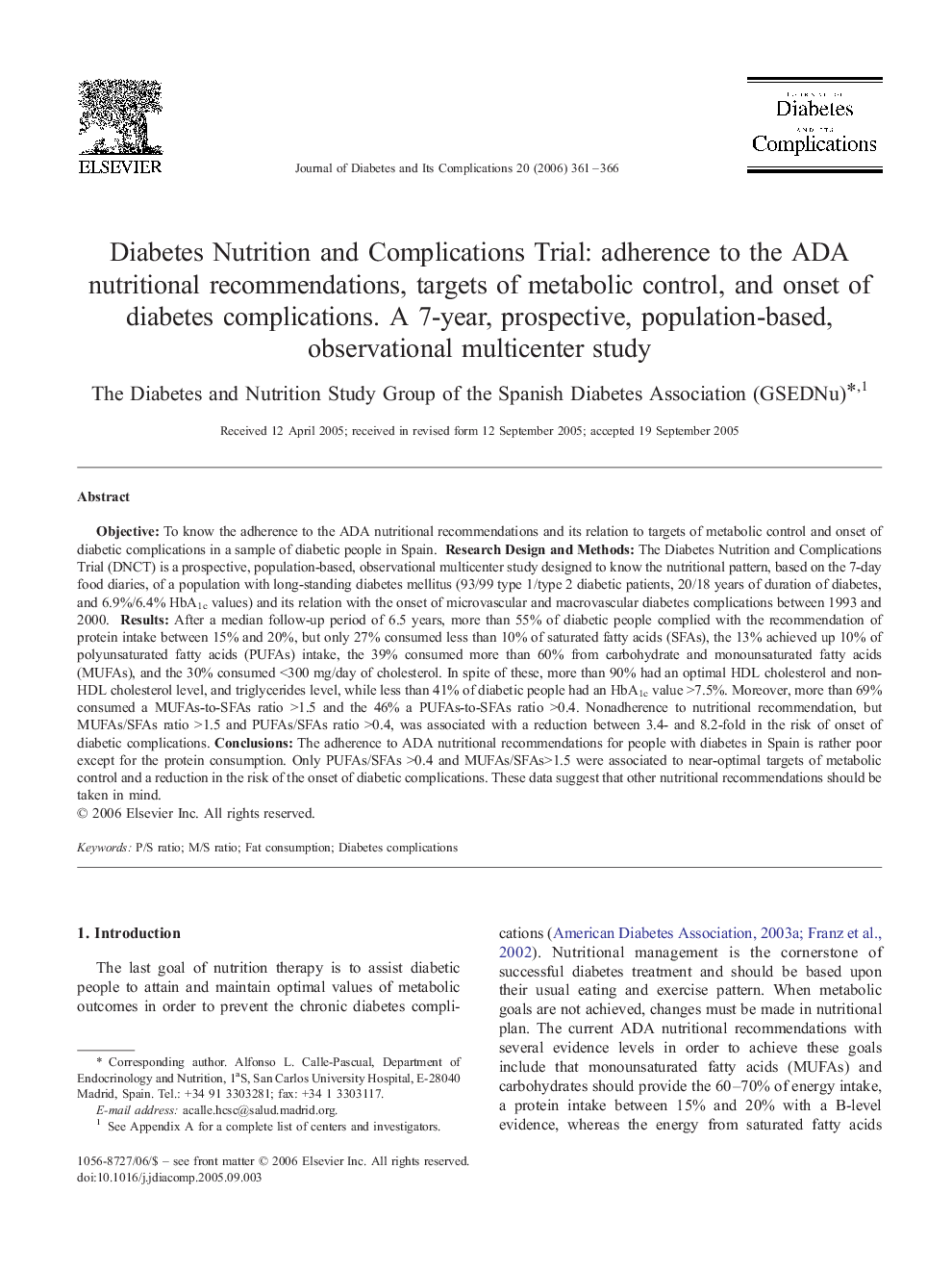| Article ID | Journal | Published Year | Pages | File Type |
|---|---|---|---|---|
| 2804849 | Journal of Diabetes and its Complications | 2006 | 6 Pages |
ObjectiveTo know the adherence to the ADA nutritional recommendations and its relation to targets of metabolic control and onset of diabetic complications in a sample of diabetic people in Spain.Research Design and MethodsThe Diabetes Nutrition and Complications Trial (DNCT) is a prospective, population-based, observational multicenter study designed to know the nutritional pattern, based on the 7-day food diaries, of a population with long-standing diabetes mellitus (93/99 type 1/type 2 diabetic patients, 20/18 years of duration of diabetes, and 6.9%/6.4% HbA1c values) and its relation with the onset of microvascular and macrovascular diabetes complications between 1993 and 2000.ResultsAfter a median follow-up period of 6.5 years, more than 55% of diabetic people complied with the recommendation of protein intake between 15% and 20%, but only 27% consumed less than 10% of saturated fatty acids (SFAs), the 13% achieved up 10% of polyunsaturated fatty acids (PUFAs) intake, the 39% consumed more than 60% from carbohydrate and monounsaturated fatty acids (MUFAs), and the 30% consumed <300 mg/day of cholesterol. In spite of these, more than 90% had an optimal HDL cholesterol and non-HDL cholesterol level, and triglycerides level, while less than 41% of diabetic people had an HbA1c value >7.5%. Moreover, more than 69% consumed a MUFAs-to-SFAs ratio >1.5 and the 46% a PUFAs-to-SFAs ratio >0.4. Nonadherence to nutritional recommendation, but MUFAs/SFAs ratio >1.5 and PUFAs/SFAs ratio >0.4, was associated with a reduction between 3.4- and 8.2-fold in the risk of onset of diabetic complications.ConclusionsThe adherence to ADA nutritional recommendations for people with diabetes in Spain is rather poor except for the protein consumption. Only PUFAs/SFAs >0.4 and MUFAs/SFAs>1.5 were associated to near-optimal targets of metabolic control and a reduction in the risk of the onset of diabetic complications. These data suggest that other nutritional recommendations should be taken in mind.
